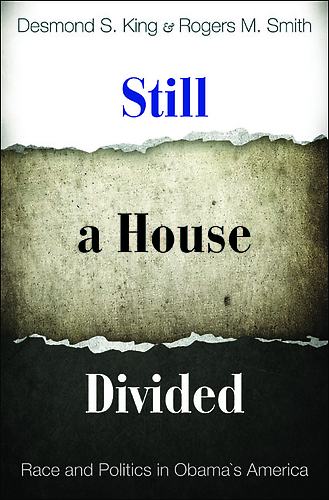
The Politics of Race: Book Launch for “Still a House Divided” by Desmond S. King & Rogers M. Smith
On Friday, 11 November, 2011, Nuffield College hosted a panel of scholars in the field of American politics, identity, and race, to discuss the September 2011 publication of Still a House Divided: Race and Politics in Obama’s America by Desmond S. King and Rogers M. Smith. The dialogue that ensued engaged the authors with a series of questions surrounding the book’s central thesis: despite the real progress in racial equality achieved by the 1960s civil rights legislation, the United States political institution has been caught in between two modes of conceptualizing, and enacting policy, about race— both of which have failed to close the tremendous gap in racial disparities in social and economic welfare that are a legacy of American …

Political Paralysis: Reflections on the Republican Party’s Hold on America
Big vs. small government, Blue vs. Red states, the Union vs. the Confederacy: each of these pairings represents different iterations on a recurring theme in the history of American politics. Now, more than ever in recent memory, these competing ideologies are emerging as polar opposites that threaten to drive the US political establishment into a stalemate. For progressives, there is the warranted fear that this deadlock is quickly devolving into a zero-sum game, in which the extreme conservatism of the Right has already won. As I watched the Tea Party-sponsored Republican debate, I was disturbed by the lack of compassion for the disadvantaged touted by several of the candidates, Ron Paul in particular. Bolstered by applause from the audience, …
Is Operation Odyssey Dawn a ‘Just’ Intervention? Assessing the Relationship Between Cause and Conduct
As Operation Odyssey Dawn gets underway, political leaders within the coalition continue to articulate their reasons for resorting to force. In so doing, each has invariably invoked the language of the just war tradition. On the eve of military action, President Obama proclaimed, ‘Our goal is focused, our cause is just, and our coalition is strong. ’ Similarly, in his remarks to the Commons on 20 March 2011, Prime Minister David Cameron argued that coalition forces had a ‘just cause’ to use force. When it comes to assessing prospective causes for resorting to arms, few could be more compelling than the protection of populations under threat of mass slaughter. It was on the basis of this pressing need to protect that …
The Dishonest Broker
The Israeli-Palestinian conflict has been both a major concern of American diplomacy since 1967 and the arena of persistent failure. There are many reasons for America’s failure to broker a peace deal between Israel and the Palestinians but the most fundamental one is that it is a dishonest broker. As a result of its palpable partiality towards Israel, America has lost all credibility in the eyes not only of the Palestinians but of the wider Arab and Muslim worlds. The so-called peace process has been all process and no peace. Peace talks that go nowhere slowly provide Israel with just the cover it needs to pursue its expansionist agenda on the West Bank.









